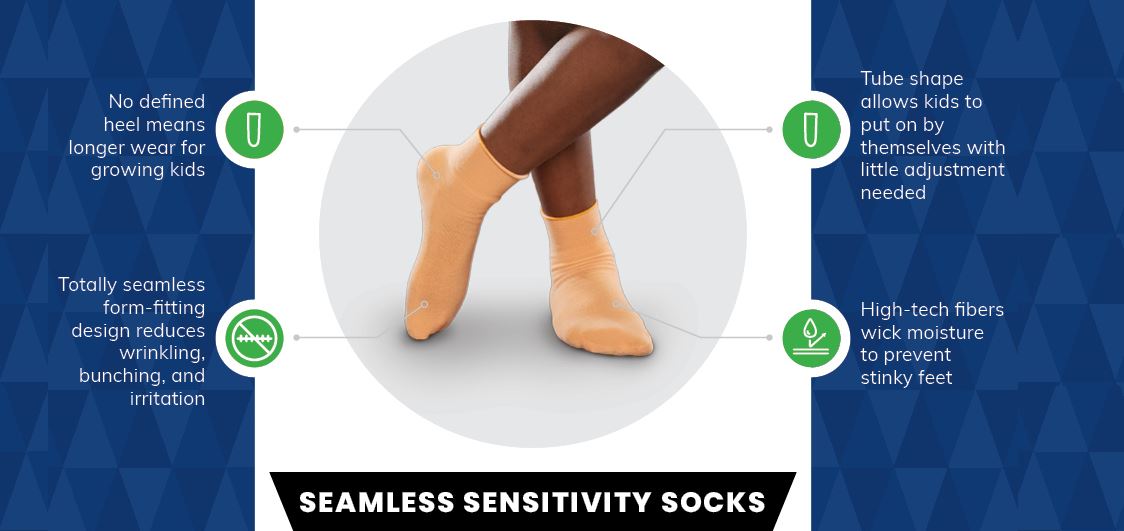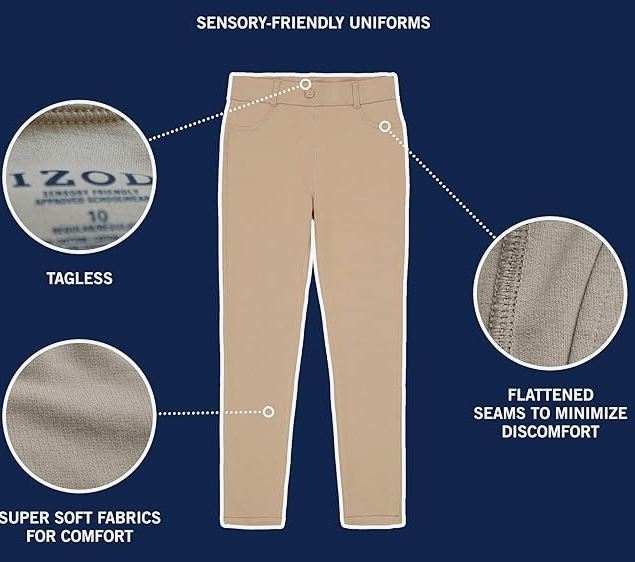When it comes to sensory sensitivities or sensory processing issues, clothing is one of the irritants I am asked most about as a child and adult psychiatrist. Children with sensory issues may face challenges in processing and responding to sensory stimuli in their environment.
For individuals with sensory issues, clothing choices play a vital role as they navigate sensitivities to textures, seams, tags, and tightness, influencing their overall comfort and well-being. Here are some ideas for sensory friendly clothing (contains affiliate links):
Seamless Socks
Socks are one of the most common irritating clothing items for people with sensory issues. Look for socks like these that are seamless and made of a smooth and tight-woven fabric to avoid excessive friction.
Seamless and Elastic-Free Underwear
These shorts are seamless and breathable as underwear or under dresses/skirts.
Seamless, breathable and wide waistband underwear for girls 8 and up.
Seamless boys boxer briefs in size 4 and up
Cotton covers the elastic band on these and they come in briefs or boxer briefs for size 2 and up
Sensory Shoes
When it comes to shoes, knit slip-on or velcro shoes tend to be most comfy for sensory kids. Many can even be worn without socks, which some kids prefer.
Boys Sensory T-Shirts
These boys sensory tees are soft, cotton, and have neck seams covered and no tag to irritate the neck.
Girls Sensory Shirts
Tagless soft girls t-shirts that are cotton and not tight on the neck.
Sensory Uniform Pants
These girls uniform pants are sensory-friendly and come in navy and beige.
These are one of the options for a boys pull-on sensory uniform pants
Or, try these uniform joggers for sensory boys or girls
Sensory Joggers for Kids
Sensory-friendly joggers for boys and girls age 2 and up to 13
Sensory Pajamas for Kids
Tagless and soft, there are many options like these for toddlers and kids sensory pajamas.
This shorts set can be used as pajamas or regular clothing, soft and cotton for sensory kids sized 12 months and up to 8
Girls Sensory Shorts
These are soft and cotton with a wide waistband, so no elastic touches the skin.
Sensory Friendly Winter Coats
This coat has a super soft fleece lining rather than sticky/squeaky nylon lining that bothers some children.
Sensory Beanies and Hats
When it comes to hats, some sensory kids prefer soft, seamless cotton hats like these.
Body Sock for Sensory Kids
Some sensory kids enjoy the feeling of being in a body sock, some even sleep in them!
Sensory Bedding
There are many bedding options for sensory kids, like this soft and stretchy compression bed sheet.
Sensory issues can manifest in various ways, affecting one or more of the five senses: sight, sound, touch, taste, and smell. Some children may be hypersensitive, meaning they may be overly responsive to certain stimuli and find them overwhelming or distressing. These challenges can impact a child’s daily life, affecting their ability to participate in activities, engage with peers, and perform tasks that others may find routine. Identifying and understanding sensory issues in children is crucial for parents, educators, and healthcare professionals, as it allows for tailored support and interventions that can help children thrive despite these challenges. Approaches such as sensory integration therapy and creating sensory-friendly environments can contribute to a more positive and inclusive experience for children with sensory sensitivities.





















